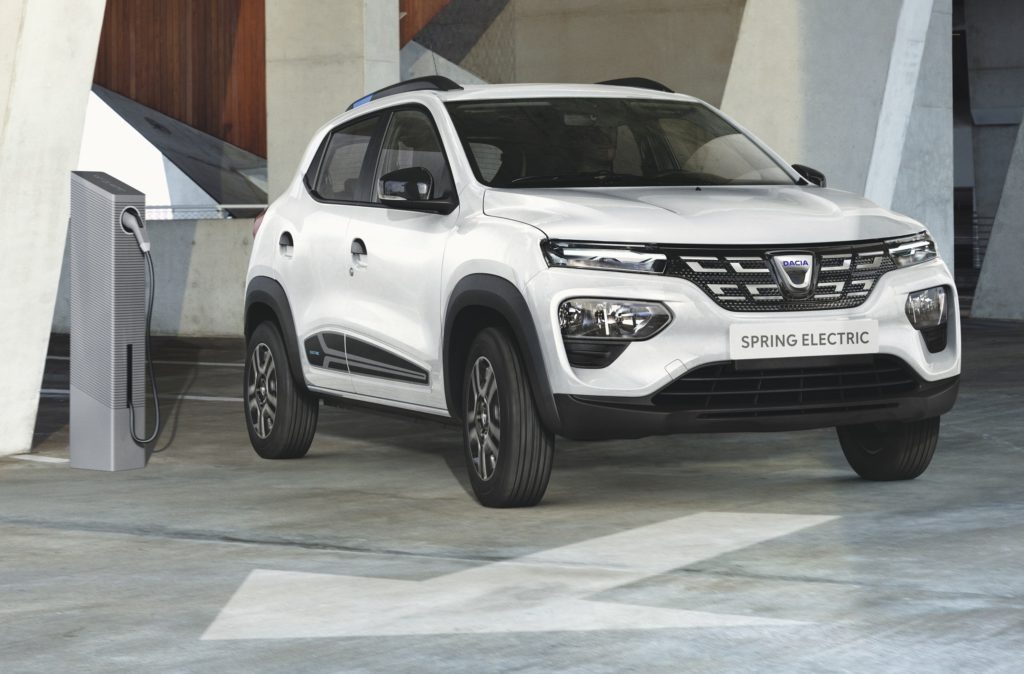Renault plugs into electromobility and circular economy
01 December 2020

1 December 2020
Establishing fresh partnerships and investing in infrastructure, Groupe Renault is looking to demonstrate its commitment to electromobility and the circular economy. Developing its 10-year partnership with supermarket chain E.Leclerc, the carmaker will supply affordable battery-electric vehicles (BEVs) to the group’s rental agencies, to drive adoption of electrically-chargeable vehicles (EVs) in France.
Renault is also staking a claim for the development of the first European factory dedicated to the circular economy of mobility. The manufacturing group’s ′re-factory’ in Flins will be based on sustainable mobility through value creation across a vehicle’s life. The site also aims to achieve a negative CO2 balance within the next 10 years.
Partnership power
Starting March next year, E.Leclerc’s 500-plus vehicle rental agencies will offer the new Dacia Spring on an exclusive basis. The partnership will look to make electromobility more available to French consumers, in the hopes of driving adoption. In total, the French shopping giant has ordered 3,000 Dacia Springs and 1,000 Renault Zoe EVs.
Renault boasts the Dacia Spring is Europe’s cheapest ′electric supermini,’ attempting to separate it from some of the more prohibitively expensive BEVs that are out of reach of less affluent consumers. With an overall WLTP range of 225km, and 295km on the test procedure’s urban cycle, the carmaker hopes the EV will see adoption across cities and suburbs.
′By offering Dacia Spring cars, which are the most reasonably-priced electric vehicles in Europe, E.Leclerc is opening the door to electric mobility for all, in as many parts of France as possible,’ said Luca de Meo, Renault CEO. ′This is an exciting, purposeful partnership and it will contribute to another of the commitments we share: building a carbon-free society. Tomorrow’s mobility will be built in ecosystems, together, and it starts with partnerships like this.’
10-year journey
E.Leclerc began its journey to electrification with Renault back in 2010. The following year, it equipped its supermarket car parks with charging stations and purchased Zoe EVs for its employee fleet in 2012. More recently, on 12 October, the retailer announced it is looking to expand its charging capacity to 5,000 stations over the next two years, then 10,000 by 2025.
′I’m glad we can encourage our customers to go electric on such a large scale. This way, they can try out the cars no strings attached, then adopt this kind of mobility over time. This is exactly the point of all our efforts for the environment and purchasing power,’ said Michel-Edouard Leclerc, chairman of E.Leclerc’s strategy committee. ′Thanks to Groupe Renault and its brand Dacia, we will be able to provide a particularly affordable deal. This is a real step forwards, to build the market for the universal vehicle of the future!’
Renault is not the only manufacturer to team up with a retailer to offer electric solutions. In 2018, Volkswagen announced a partnership with UK supermarket chain Tesco to develop a retail charging network powered by Pod Point. As carmakers try to make consumer’s adoption of electromobility easier, they also hoping to open up new revenue streams to offset the sizeable transition costs to new greener technologies.
′New breath of life’
The scale of this manufacturing evolution can be seen at Renault’s Flins site, where it has created Europe’s ′first circular-economy factory’. Dubbed the ′re-factory’, it aims to achieve a negative CO2 balance by 2030.
Work with a large network of partners will be carried out to achieve this ambition between 2021 and 2024, and will focus on four key activities to support the vehicle’s entire life cycle, namely re-trofit, re-energy, re-cycle and re-start. The carmaker is also investing in training schemes for employees of Flins and Choisy-le-Roi looking to develop their skills, as well as employing more than 3,000 people on the site by 2030.
′This announcement is the result of the remarkable work of Renault’s teams and constructive consultation with our stakeholders, including local authorities,’ said Jean-Dominique Senard, chairman of the board of directors of Renault. ′The re-factory is a new breath of life for Renault, its employees and for the entire region’s dynamism. This project is based on our pioneering commitment to the circular economy, on our values, on our know-how and fully meets our ambition to positively transform our industry.’